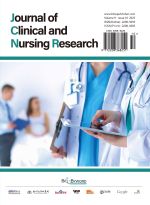Abstract
Objective: To explore the clinical effect of multimodal nursing intervention on postoperative pain management in patients undergoing gastrointestinal surgery. Methods: A total of 120 patients who underwent gastrointestinal surgery in our hospital from January 2023 to January 2024 were selected as the research subjects. They were randomly divided into the intervention group and the control group, with 60 cases in each group. The control group received routine postoperative care, while the intervention group received multimodal pain care intervention. The postoperative pain scores, the rate of using analgesic drugs, postoperative recovery indicators, and nursing satisfaction were compared between the two groups. Results: At 24 hours, 48 hours, and 72 hours after surgery, the VAS pain scores of the intervention group were significantly lower than those of the control group (p < 0.05); the rate of using analgesic drugs in the intervention group (25.0%) was significantly lower than that in the control group (48.3%) (p < 0.05); the first defecation time, first ambulation time, and hospital stay of the intervention group were shorter than those of the control group (p < 0.05); the nursing satisfaction of the intervention group (96.7%) was significantly higher than that of the control group (80.0%) (p < 0.05). Conclusion: Multimodal pain care intervention can effectively relieve postoperative pain in patients undergoing gastrointestinal surgery, reduce the use of analgesic drugs, promote postoperative recovery, and improve nursing satisfaction.
References
Du J, Ma J, 2023, The Impact of Multimodal Analgesia on the Use of Opioids During Surgery and Postoperative Recovery in Elderly Patients Undergoing Abdominal Surgery. Clinical Medicine Progress, 13(9): 14005–14013.
Wang Y, Lin D, Ma P, et al., 2020, The Role of Multimodal Analgesia in Accelerated Recovery After Surgery for Colorectal Cancer Patients. Journal of Jiangsu University (Medical Edition), 30(4): 357–360.
Zhang W, Li K, Zhang W, et al., 2017, A Prospective Non-Randomized Controlled Study on the Application of Multimodal Analgesia in Radical Surgery for Gastric Cancer. Chinese Journal of Gastrointestinal Surgery, 20(3): 270–276.
Jiang P, Guo Q, Qu X, et al., 2019, The Application of Multimodal Analgesia in Accelerated Recovery Surgery for Gastrointestinal Tumors. Shanghai Medicine, 42(4): 213–217.
Zhou Y, 2022, Thoughts and Suggestions on the Management of Accelerated Recovery Surgical Pathway in the Perioperative Period of Gastrointestinal Tumors in China. Chinese Journal of Gastrointestinal Surgery, 25(7): 568–574.
Jiang Z, Li N, Li J, 2007, The Concept and Clinical Significance of Rapid Recovery Surgery. Chinese Journal of Practical Surgery, 27(2): 131–133.
He J, Liu H, Wang G, et al., 2019, Research on the Application of Multimodal Analgesia in Pain Management of Laparoscopic Gastric Cancer Surgery. Journal of Laparoscopic Surgery, 24(5): 339–343.
Zhu L, Zhao M, 2015, The Application of Multimodal Analgesia in Rapid Recovery Surgery in Patients with Intestinal Surgery. General Nursing, 2015(6): 481–483.
Xu K, Su Z, Qian G, et al., 2016, The Application of Multimodal Analgesia Based on the Theory of Rapid Recovery Surgery in Laparoscopic Radical Resection for Colorectal Cancer. Shandong Medicine, 56(10): 38–39.
Nie H, Zhang R, 2016, The Effect of Multimodal Analgesia Combined with Different Concentrations of Ropivacaine Infiltration at the Incision on Postoperative Analgesia in Accelerated Recovery Surgery. Practical Pharmacy and Clinical Practice, 19(9): 1120–1124.
